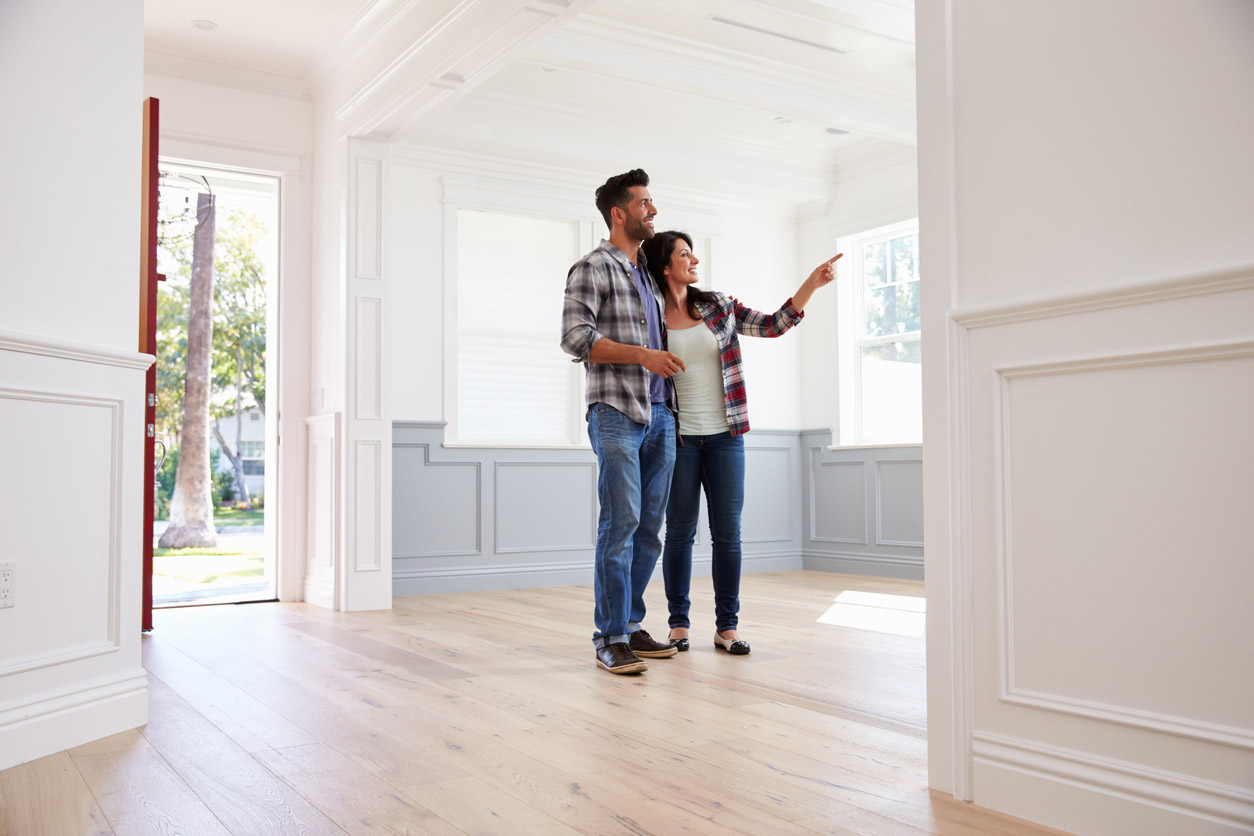We may earn revenue from the products available on this page and participate in affiliate programs. Learn More ›
Buying a home is a major decision and something you shouldn’t take lightly. It’s not a good idea to rush, because you might miss some telltale signs you’re about to buy the wrong house. On the other hand, if you move too slowly, your dream house may get snapped up by another buyer. Usually, you need to view a home more than once to be sure you haven’t overlooked anything that could prove problematic. But how many viewings are enough? Two, three, more? Let’s see what a few real estate professionals say.

The third time’s the charm
Even in a competitive market, Greg Kurzner, president/broker at Resideum in Alpharetta, Georgia, says he likes his clients to see a home three times before making an offer. “The first time through the house, the buyers have on ‘rose-colored glasses’ and are often enamored of the house and not looking at its flaws.”
During the second visit, he says, the exact opposite tends to occur. “They become overly critical of things. They’re worried that the house is too good to be true, so they look for things that are wrong to make sure they aren’t making a rash decision.” Kurzner believes that the third visit usually provides a good balancing experience. “They typically reaffirm their desire for why they liked the house to begin with, and they also begin to rationally evaluate its flaws to settle on its benefits and drawbacks.”
The second time around
Some real estate agents believe that buyers should see a home at least two times before making an offer, but they also admit that it may be difficult to schedule two viewings. Ashley Melton, a Realtor at AgentOwned Realty in Charleston, South Carolina, believes in the two times rule. “Many things are overlooked during the initial showing that will be caught on the second showing,” she explains. “Was there enough storage space? Will my furniture fit? Where were the washer and dryer located?” Melton also advises buyers to keep a list of their desired/necessary features so they won’t overlook them. “However, in the current market, buyers may not have time for a second showing,” she notes.

Once before, then again after making an offer
Christopher Totaro, an agent at Warburg Realty in New York City, also believes two viewings are prudent—unless the buyer had an extended first showing. “Often, and especially in a competitive market, one long showing of an hour or more is suitable in order to determine if you will submit an offer.” But after a contract is signed, he wants the buyer to see the home again. “Often the second viewing is with a home inspector, so there is ample time to take a detailed look with an informed adviser.”
Real estate agent Mihal Gartenberg, a Warburg Realty colleague, says it often depends on the buyer’s personality, but she recommends at least two viewings, at different stages. “In a very hot market when buyers are expected to waive all sorts of contingencies and make an offer within hours, buyers can see a home, make an offer, and come to look one more time before signing the contract to make sure they are happy.”
But she believes that second viewing is vital. “When a home ‘hits the spot’ on the first showing, it is good to see it one more time when emotions are not so heightened and little things that matter might be missed, like noise, damage, etc.”

What about the neighborhood?
Although Kurzner recommends viewing a home three times, he says that for some people it may depend on how familiar they are with that specific neighborhood or area. “For those relocating to the area, it is important to consider the amenities nearby and what traffic is like when they are going to and coming home from work; for those more familiar with the area, it’s less necessary to make repeated visits to the home/neighborhood,” he explains.
Broker Michael J. Franco of Compass in New York City believes two viewings are enough because the actual home won’t need to be assessed to answer some of the buyer’s other questions. “If buyers have concerns about the neighborhood, noise, etc., they can explore on their own.” In other words, just walking or driving around the neighborhood can provide a feel for how quiet or noisy the street is.
Be sure to view the home at different times
According to Gerard Splendore, a broker at Warburg Realty in New York City, buyers should view a home as many times as they need to feel comfortable buying it. “I have always encouraged buyers to see a house on weekdays and weekends, and at different times of the day, as the ‘vibe’ or feeling will be different.”
In fact, in a perfect world, he would like for buyers to be able to observe a home in different seasons, but he admits that is not possible for most buyers. “One of my best buying experiences was an inspection of a house on which I was bidding during a summer thunderstorm,” Splendore says. “I stood at the top of the basement stairs and watched as water flooded in from a drain at street level outside; I did not buy the house.” That’s a type of problem that home staging can’t hide, and it’s also why buyers need to be thorough and diligent.

